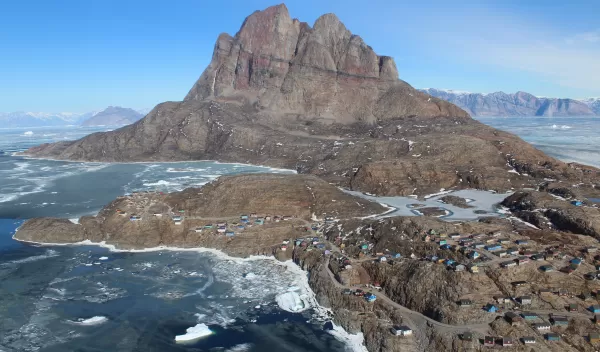
NSF expands Arctic investment
Temperatures in the Arctic are warming faster than nearly anywhere else on Earth. Some climate models project an ice-free Arctic Ocean in a few decades. In order to meet these unprecedented challenges head-on, the U.S. National Science Foundation is advancing Navigating the New Arctic research.
NSF recently funded 17 projects totaling $26.7 million, which will directly support 69 investigators across 21 different institutions in addition to funding students and postdoctoral scholars. These projects focus on multi-discipline research across the social, natural, and built environment including those with the potential for engagement with Arctic communities.
NSF is also partnering with University of Colorado Boulder, Alaska Pacific University and University of Alaska Fairbanks on a five-year, nearly $5 million cooperative agreement for a Navigating the New Arctic Community Office. The office will support innovations across engineering and the social, natural, environmental, and computing and information sciences by focusing on four key areas:
- Co-production of knowledge with Indigenous Peoples
- Convergence research
- Culturally responsive education and outreach and open science for greater integrity
- Data sharing and reproducibility across decision-making communities
The work of this office will forge stronger connections between Arctic residents and the Arctic research community and enable researchers, stakeholders and Indigenous communities to better deal with the wide-scale changes and unprecedented risks to natural environments stemming from climate change.
"The Arctic is experiencing a period of unprecedented change," said Assistant Director for Geosciences William Easterling. "Understanding and adapting to this change will require creative new directions for research, education and workforce development, and leveraging science, engineering and technology advances from outside the Arctic."
With its focus on convergence research, this set of projects builds on the overall Navigating the New Arctic goal to support deep collaboration on questions affecting the natural environment, the built environment, and social systems.
These projects provide support for developing research teams from disparate disciplines and communities as well as enhancing the STEM workforce, engaging international partnerships and increasing observational capabilities.
These important projects cover topics such as:
- Creating adaptable power systems for Arctic communities
- Analyzing pan-Arctic convergent development pressures
- Examining changes in permafrost thaw lakes and the impacts on the communities that rely on them
- Improving resilience in the energy sector against Alaskan wildfires.
More information about Navigating the New Arctic can be found on nsf.gov.
